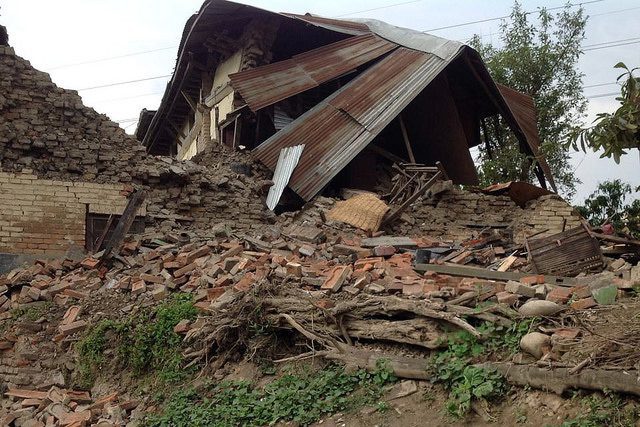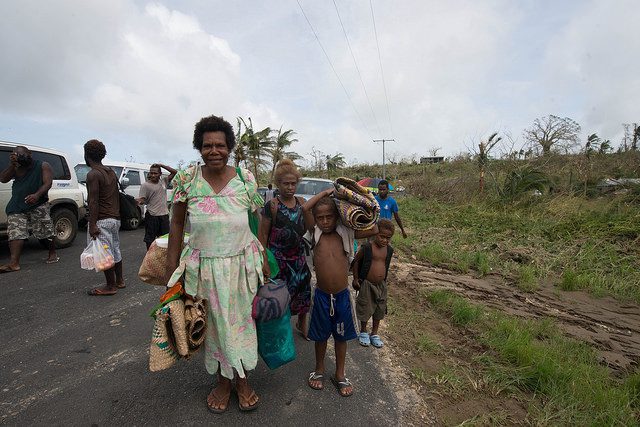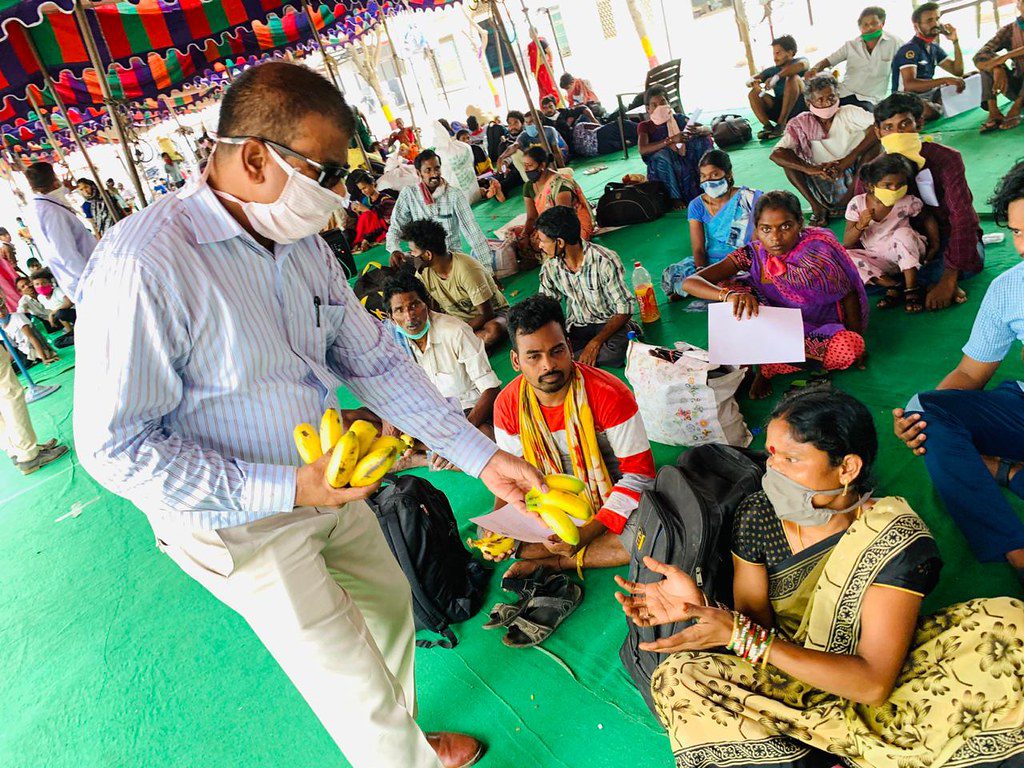
Local officers recall quake in the midst of Holiness meeting
During The Salvation Army Holiness meeting April 25 in Nepal, the ground began to shake.
Majors Lalsangliana Vuite and Lalnunsangi Ralte pioneered the work of The Salvation Army in Nepal since it opened in 2009, alongside daughters Amelia, 21, and Rebecca, 18, who work as extension officers. As they led the weekly meeting, the 7.8 magnitude earthquake hit leaving widespread destruction and loss of life.
“We were opening time for sharing testimony, and the house was shaking so much with a rumble sound underground, and we could not go toward the door as it was shaking so much,” Ralte said. “After sometime we manage to go out. The whole ground was shaking and the pipelines, the water tank broke down from roof, the people were shouting calling out their respective gods and God, the cows were mooing, the dogs were barking, the crows were all hovering.”

Many Nepalese people have been displaced from their homes | Photo by Colonel Carol Telfer
They remained outside for three nights as the houses cracked and were too dangerous to enter, despite the cold rain.
“We always went out in between the aftershock having prayer because our people were really feel so afraid,” Ralte said. “The members feel so safe just to be with us. This is the very reason we were sent…God is great.”
The Salvation Army in Nepal has a congregation of 200, and runs a tailoring and craft center for indigenous women and after school care out of its community development center along with a cafe that provides skills and business training.
Now staying with the officers is a team of experienced emergency workers that arrived in Nepal April 29 to support and direct The Salvation Army’s response to the disaster that has to date claimed the lives of more than 5,000 people.

Photo taken by Josika Chhetri, Digital Engagement Officer for The Salvation Army’s United Kingdom Territory with the Republic of Ireland.
Damaris Frick, from International Emergency Services at International Headquarters, and Colonel Carol Telfer and Major MacDonald Chandi, who are both based in Pakistan, are now in Kathmandu. They will be joined at the end of the week by Captain Kathy Crombie, a Nepali-speaker on the staff of The Salvation Army’s International Social Justice Commission.
As often happens in major disaster responses, the United Nations set up a hub for all relief agencies and non-governmental organizations, ensuring that the various groups work together as part of a relevant cluster to cover as much ground as possible and avoid repetition. Frick has attended several cluster meetings, which will help in the decision of where The Salvation Army will focus its efforts. An initial sum of US$20,000 was released by International Headquarters to provide tents and a large supply of essentials such as food, water and blankets.
The India Eastern Territory, which oversees Salvation Army work in Nepal, is sourcing food, water and other essentials that it hopes to transport by road. Damage caused by the earthquake to major routes is making this difficult.

Team members in Nepal are grateful for all promises of assistance and also value the prayers offered by people across The Salvation Army and beyond. With this in mind, the disaster and response in Nepal will be the focus of this week’s Worldwide Prayer Meeting.
You can make a donation in support of The Salvation Army’s #NepalEarthquake appeal and join in the response effort.














